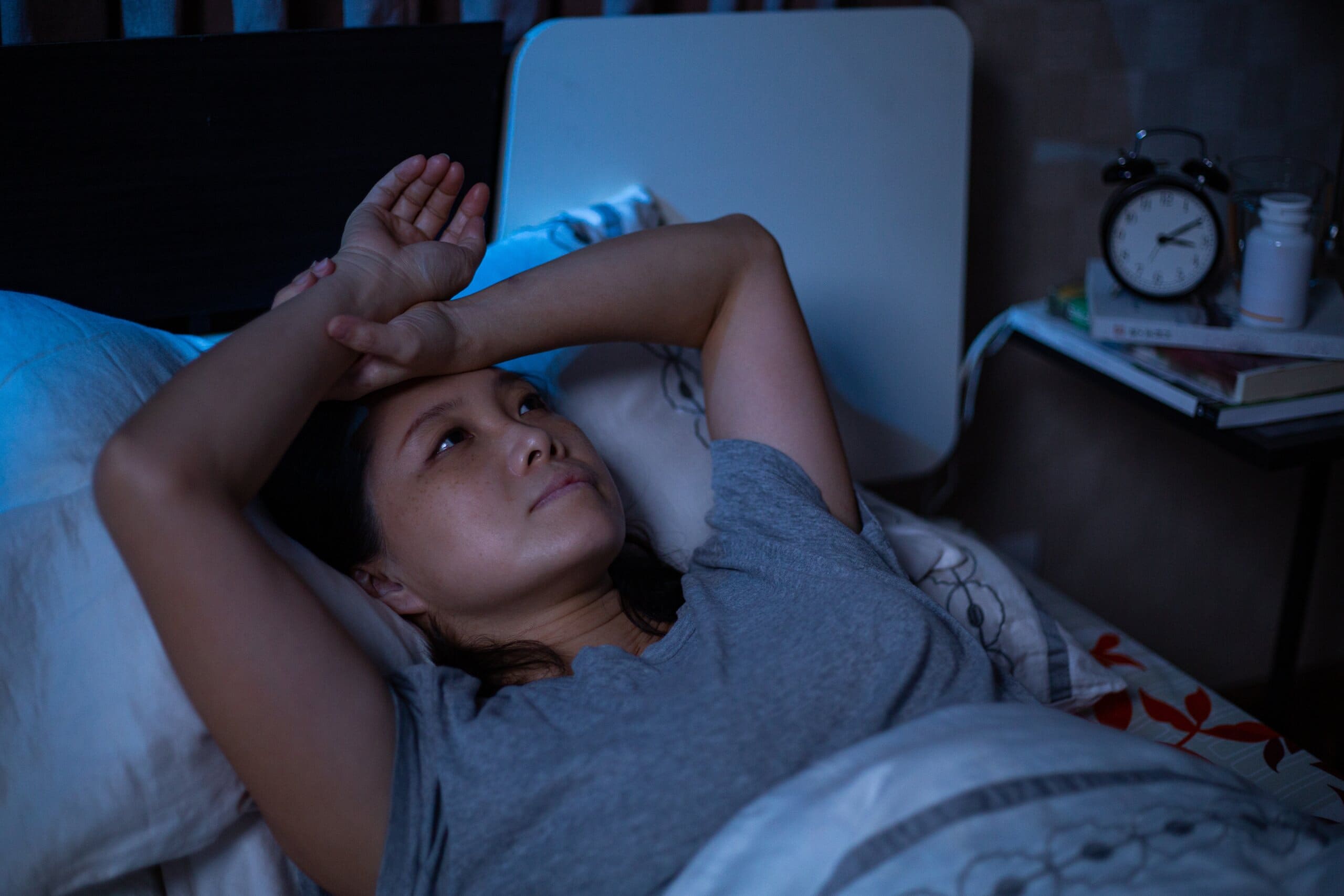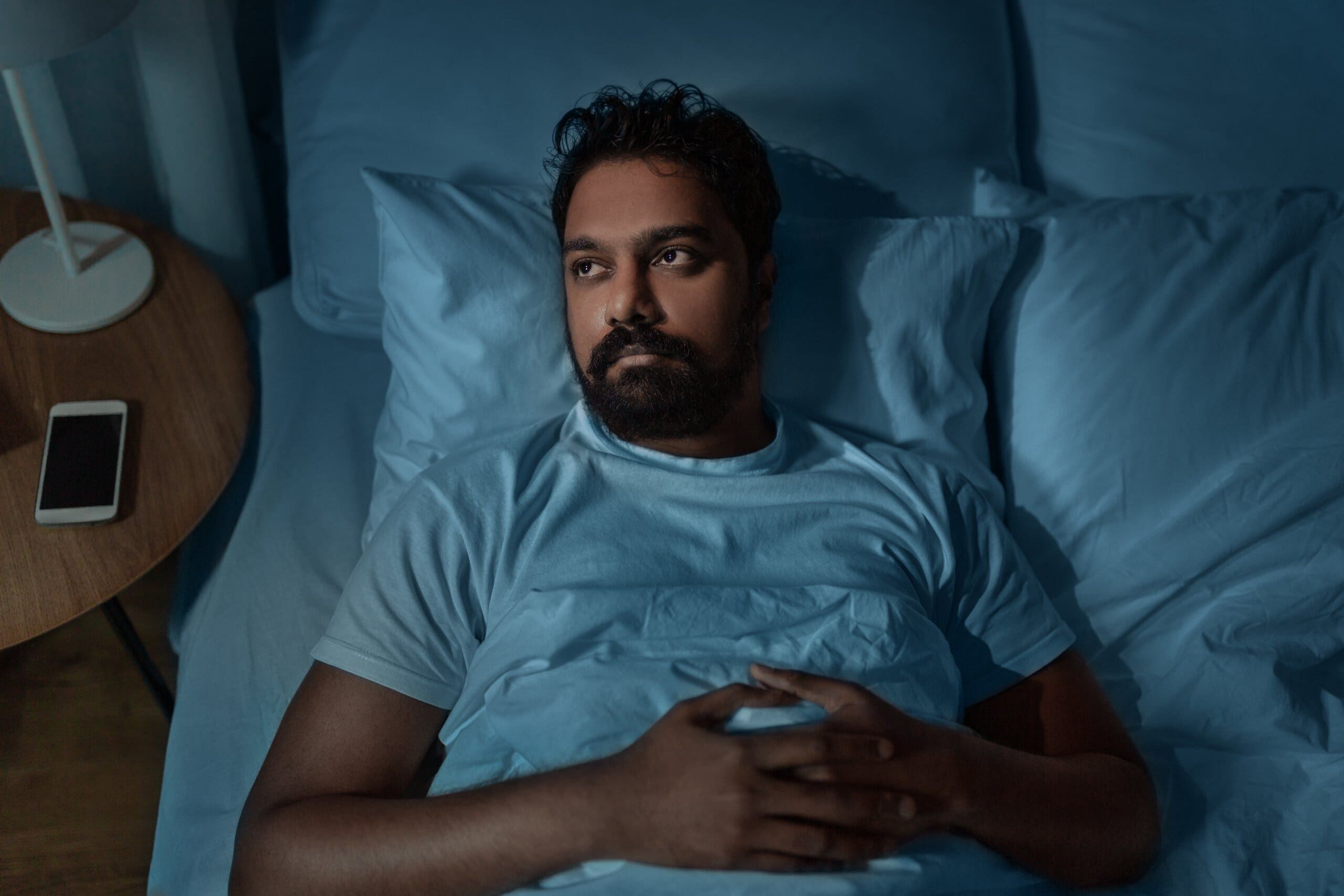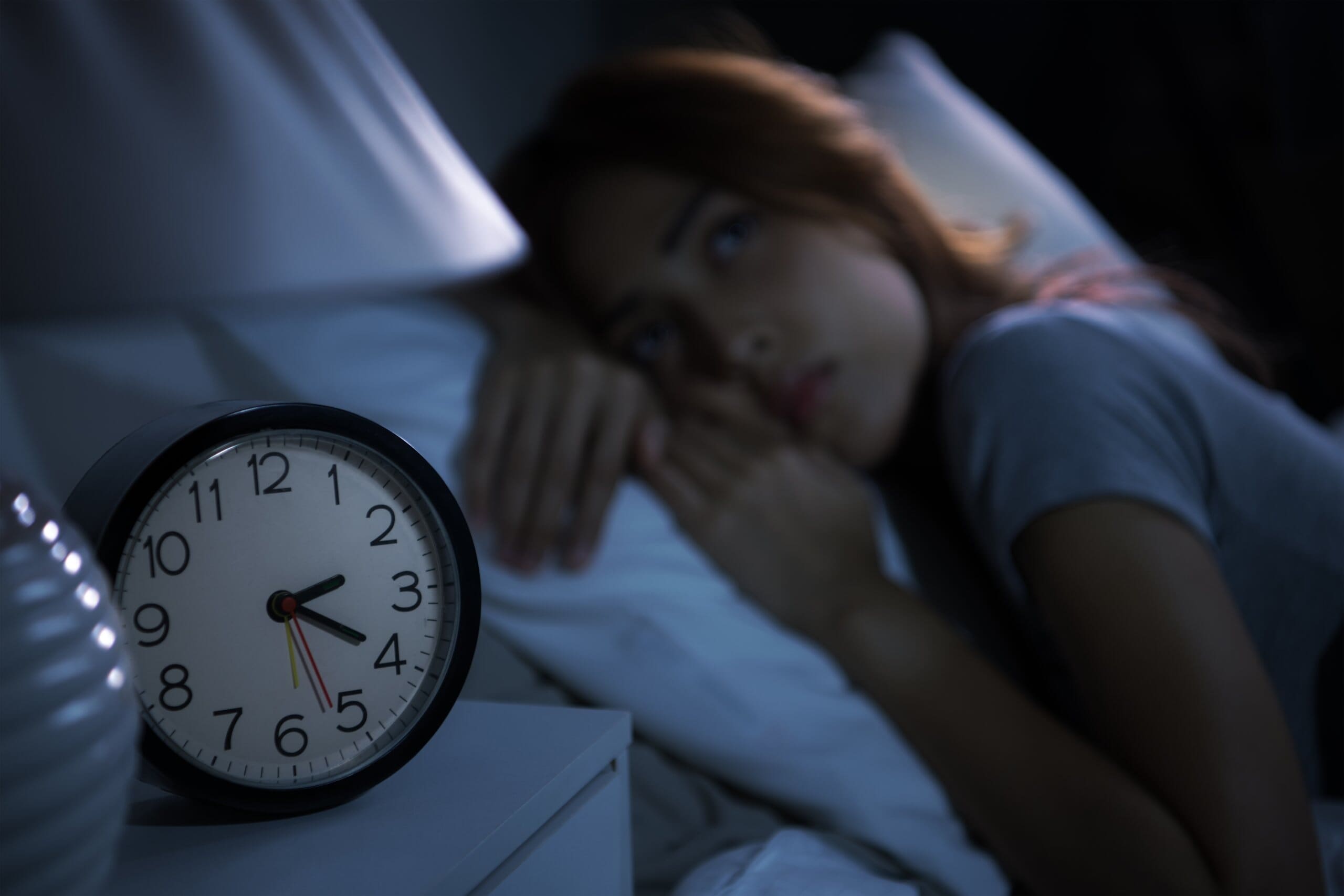Being unable to get to sleep at night can feel like torture. Lying awake, tossing and turning, and never feeling that blissful pull of sleep can actually make you very unwell (it can affect your physical health in lots of ways - just read our guide on how lack of sleep affects your heart), so knowing about the different types of insomnia, what causes them, and more importantly, how to deal with them, can be a lifesaver.
This insightful guide delves into the intricacies of insomnia, exploring its definition, causes, and the distinct types that exist. We’ll talk you through different techniques to help overcome insomnia, as well as when you should seek out a sleep specialist to help you. Let’s get into it.

What is insomnia?
The opposite of Hypersomnia, Insomnia is one of the most common sleep disorders that affect how easily you can fall, and stay, asleep. It’s medically diagnosed as being unable to get enough quality sleep to help you function correctly – so you may have been in some stages of sleep, but you haven’t gone through enough regular sleep cycles to help you get through the day with proper function.
It can be short (sometimes called acute insomnia), or it can be long-term (chronic). Acute insomnia lasts between one night and 14 nights on average, while chronic insomnia is diagnosed if you struggle to get enough good quality sleep for three or more nights a week for more than three months. You may also find that sometimes it can come back again and again, especially if your sleep hygiene begins to slip or you are under stress.
Symptoms of insomnia
Effects of insomnia that you might spot during the day include:
- Feeling tired or groggy
- Becoming easily irritated
- Trouble remembering things
- Delayed reflexes
- Trouble concentrating
What causes insomnia?
Sleep experts don’t know exactly why insomnia happens, but they have found some linked causes that can affect people. Insomnia has both primary and secondary causes. Primary insomnia means it happens on its own naturally. Secondary insomnia means it happens as a side effect of another condition or circumstance.
Primary causes of insomnia include:
- Disruptions to your sleep schedule caused by things like jet lag, shift work, or previous bad sleep habits
- Stress from life events, like losing your job or changing careers, the death of a loved one, moving house, or a relationship ending
- Atmospheric changes around you like noise, light, or temperature
- Your genetics can also have an impact - research has found that insomnia tends to run in families
Secondary causes of insomnia include:
- Mental health issues like depression and anxiety
- Certain medications, like those for depression, high blood pressure, and asthma
- Ingesting caffeine, tobacco, alcohol, or illicit drugs
- Other sleep disorders, like sleep apnoea or restless legs syndrome
- Pregnancy, PMS, and menopause
- Alzheimer's disease and other types of dementia
- ADHD

How many types of insomnia are there?
There are two types of insomnia: primary and secondary, which are linked to the causes we mentioned above.
What are the types of insomnia?
- Primary insomnia means your sleep problems aren’t linked to any other health condition or problem.
- Secondary insomnia means you have trouble sleeping because of another circumstance or condition.
You might also hear about:
- Sleep-onset insomnia is when you struggle to drift off to sleep at night
- Sleep-maintenance insomnia happens when you wake up multiple times throughout the night or wake up too early in the morning and can't get back to sleep easily
- Mixed insomnia involves difficulty both falling asleep and staying asleep
- Paradoxical insomnia is when you feel like you've barely slept a wink all night, even though a sleep study would show that you got a decent amount of shut-eye
How to deal with insomnia
Insomnia can be very frustrating to deal with, but there are steps you can take to improve your sleep hygiene and hopefully get a decent night's rest. Here are our expert top tips:
- Develop a sleep schedule. Try to go to bed and wake up at roughly the same time each day, even at weekends. This helps to regulate your body's natural circadian rhythm – find out more about this in our guide on how to reset your circadian rhythm.
- Create a relaxing bedtime routine. Wind down the hour before bed with calming activities like taking a warm bath, reading a book, or listening to soothing music. Avoid screens like TVs, laptops, and mobiles as the blue light they emit can disrupt your sleep. Our ultimate bedtime routine can help set you in the right direction.
- Optimise your sleep environment. Make sure your bedroom is dark, quiet, and cool. It could be worth investing in blackout curtains, earplugs, and a comfy mattress and pillows.
- Manage your stress. Stress is a major contributor to insomnia. Relaxation techniques like deep breathing exercises, meditation, or yoga can help you unwind before bed. Read our guide on moon breathing for something different!
- See a GP. If your insomnia persists despite lifestyle changes, consult your doctor. They can help to rule out any underlying medical conditions and recommend further treatment options, such as cognitive behavioural therapy, or seeing a sleep specialist.
Getting a handle on your sleep can make the difference between a good day and a bad one, so following these sleep tips can be handy for everyday life, even once you conquer your insomnia. We’ve got plenty more sleep advice and insights in our Snooze News section of the website, such as understanding sleep anxiety, which could also be a cause of your insomnia. Plus, we can help you find your dream bed to help you easily slip off to the land of nod too.











